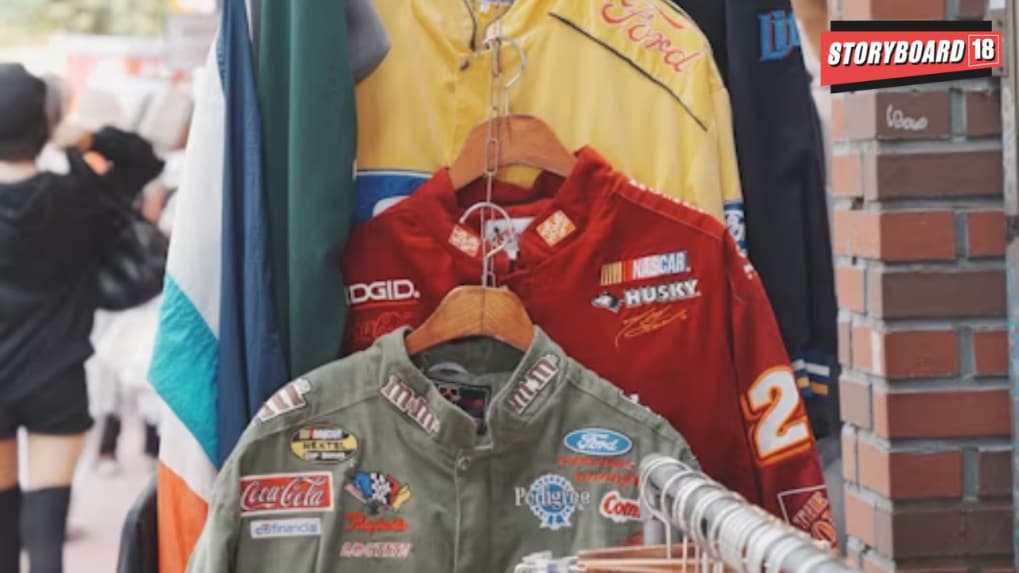The Merch Moment! How fandom-driven economy is turning merchandise into lifestyle movement
Whether it’s streetwear drops from cult anime, K-Pop or shoes inspired by luxury cars, merch is becoming a serious business. Globally, the licensed merchandise market is forecasted to reach $418.97 billion by 2033, up from $282.08 billion in 2024, growing at a CAGR of 4.5%.
ADVERTISEMENT
India’s merchandising market is undergoing a cultural transformation. Once viewed merely as a marketing add-on, branded merchandise is now emerging as a full-fledged consumer category driven by fandom, identity and an eagerness to wear what they love. Whether it’s streetwear drops from cult anime, K-Pop or shoes inspired by luxury cars, merch is becoming a serious business. “India’s market is currently estimated at around $2 billion, tiny compared to the global $356.5 billion. But that just shows how much headroom there is. With rising fan culture, better IP management and a maturing consumer base, we’re entering a high-growth phase,” N. Chandramouli, CEO of TRA Research, told Storyboard18.
He pointed sports merch as a growth leader, especially IPL, which is expected to grow at a CAGR of 16% through 2029. “Even political personalities and OTT shows are now generating serious merch traction. It’s a viable revenue stream, a strategic growth lever, and a tool for deep cultural engagement. With small-batch production now viable, brands can test before scaling,” he added.
Globally, the licensed merchandise market is forecasted to reach $418.97 billion by 2033, up from $282.08 billion in 2024, growing at a CAGR of 4.5%, according to Business Research Insight. India, with its booming youth demographic and rising disposable incomes, is uniquely positioned to ride this wave.
Read More: Cool Profits: Ice Cream brands scoop up sales with digital-first advertising
Brand perspective...
“Identity is the new currency in merch,” says Harsh Lal, Co-Founder of The Souled Store. “Our most successful drops have been those anchored in strong emotional and cultural touchpoints—drops that feel personal, not just product-driven.” The brand’s ‘Nomad’ and ‘Kurukshetra’ collections, rooted in mindset and mythology respectively, saw fans connect with the story behind the apparel just as much as the product itself.
For Jiggy George, CEO and Founder of Dream Theatre, two 2024 collaborations stand out. “Our Pokémon x Oreo drop in February was a huge success,” he says. “The launch coincided with Coldplay’s India tour, with the yellow variant of Oreo cleverly tying into their iconic track ‘Yellow’. We did it all—in-store, quick commerce, outdoor ads, social—it took the country by storm.”
Dream Theatre’s other hit was the Hello Kitty x Pero luxury fashion line that opened Lakmé Fashion Week in October. “It’s a celebration of Indian textiles in Pero’s whimsical style, available not just in India but in 17 countries,” George notes, positioning IP as both culturally local and globally exportable.
Jatin Varma, Founder of Comic Con India, says “It’s hands down anime and manga right now. Any official merch from this space is hot—especially niche or newly popular titles. For fans, it’s a mix of utility, fashion and identity, but the core is always identity.”
Varma singles out a recent Fossil x Superman collab as a personal favorite, but he admits that his experience with merch is rooted in events. “We use licensed merch mostly as a marketing tool—something unique visitors can take back. Design and exclusivity are key. Price matters too, of course.” Bollywood remains the weakest link. “Barring a few nostalgia hits, Bollywood IPs are among the least popular at Comic Con.”
Read More: Cooling Wars Heat Up: AC brands battle for summer dominance
Streetwear meets Storytelling!
Shubham Gupta, Founder of Bonkers Corner, sees merchandise as the new streetwear. “Gen Z isn’t just buying clothes, they’re buying identity,” he says. IP-driven drops, such as collaborations with Marvel, Disney or Steven Rhodes, have consistently outperformed other lines. Bonkers Corner drops 50–100 SKUs a month, with over 70% sell-through on IP-led merch.
Interestingly, Gupta says 23% of sales come from tier-2 and tier-3 cities. “Fandom isn’t a metro-only phenomenon anymore. It’s spreading fast.”
For The Souled Store, merchandise now accounts for 47% of total revenue with an 80% sell-through rate and a 160% repeat purchase rate.
Brands report stronger conversion rates for merch as Souled Store’s 80% sell-through, Bonkers Corner’s 18% higher merch page conversions and lower customer acquisition costs as 15–25% less for Bonkers Corner. “Merchandise now contributes 20–25% of our total revenue. What’s more, our customer acquisition cost is 15–25% lower than traditional brand campaigns, and merch pages convert 18% better than core products.”
Beyond vanity metrics, the merch game today is all about performance. Gupta reveals that IP-led merch has an average order value Rs 1,500 higher than the core catalog. Meanwhile, The Souled Store sees licensed SKUs sell at Rs 1,000 compared to Rs 850 for original designs.
Read More: Toy Boom: How playtime is powering a $3 billion industry


